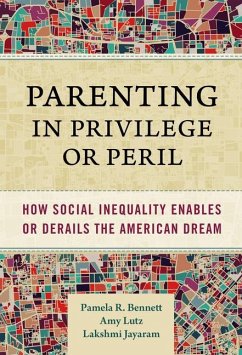Is the American dream that exists for the middle class equally available to the working class? Using extensive interviews with parents and a variety of data sources, this book examines how social contexts and culture affect parenting decisions. By analyzing class differences in neighborhoods, schools, and networks, as well as their relationship to mobility-related parenting practices, the authors demonstrate that cultural differences are no match for economic inequalities. They show how middle-class parents have access to social contexts characterized by security, which gives rise to what the authors call "strategic parenting"-- a set of practices that allow adolescents to develop the qualities and skills they will use to go off to college and, subsequently, achieve the American dream. Conversely, the contexts of working-class parents are characterized by precarity, giving rise to "defensive parenting"--an almost frantic use of harm-mitigating interventions to protect adolescents from threats to both their well-being and prospects for mobility. This important book calls for a shift in public policy away from trying to change working-class parents to improving the social contexts in which society asks them to raise the next generation. Book Features: * An explanation for social class differences in educationally relevant, mobility-related parenting practices that contrasts with the dominant cultural explanation. * Research findings that are informed by a variety of data sources, including interview data, survey data, social network data, census data, and crime statistics. * Two new parenting concepts--strategic parenting and defensive parenting--that capture how middle-class and working-class parents pursue social mobility for their children.
Hinweis: Dieser Artikel kann nur an eine deutsche Lieferadresse ausgeliefert werden.
Hinweis: Dieser Artikel kann nur an eine deutsche Lieferadresse ausgeliefert werden.








